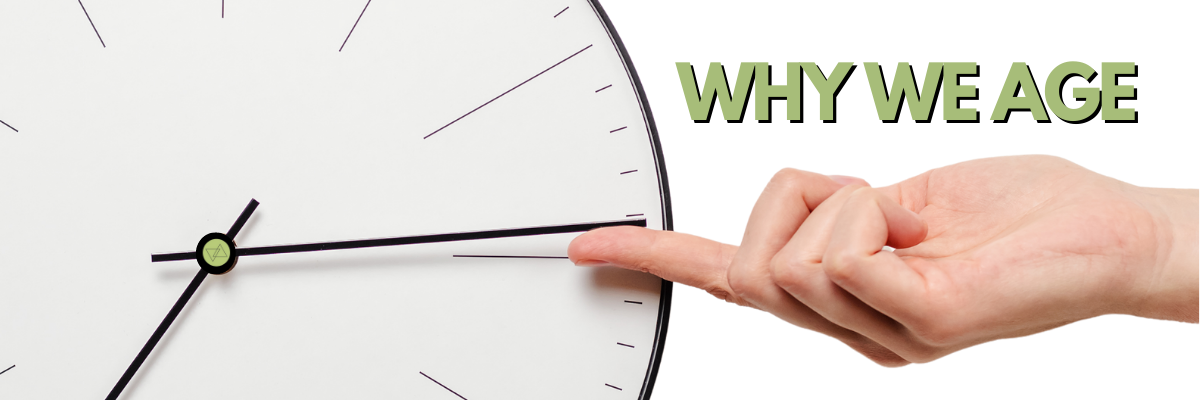THE BIG REWIND workshop series details strategies to turn back our aging clock; prevent, slow, and reverse disease, and maintain our resilience, strength, and purpose.
New discoveries in the science of longevity not only reveal why we age but what we can do to slow the process – even to age backward!
Rather than a reactive disease-focused approach, THE BIG REWIND takes a proactive health-focused approach to aging.
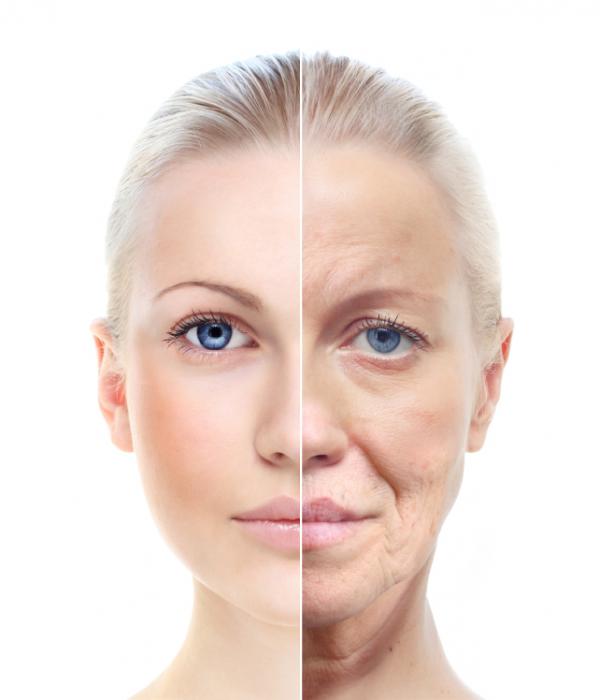
Although we’re living longer than any time in history, most of us will spend the last few decades of our lives suffering from preventable and reversible ailments and diseases.
Advances in surgery and medication help many of us live a longer lifespan, but what about our health span? Lifespan is how long we live. Our health span is how many years we live a healthy, vibrant, and functional life.
Right now, six in ten Americans suffer from at least one chronic disease; and four in ten have more than one chronic disease.
All chronic disease is rooted in inflammation. Inflammation is such a big part of aging that some researchers have even coined the term “Inflammaging” to describe the biological process of aging.
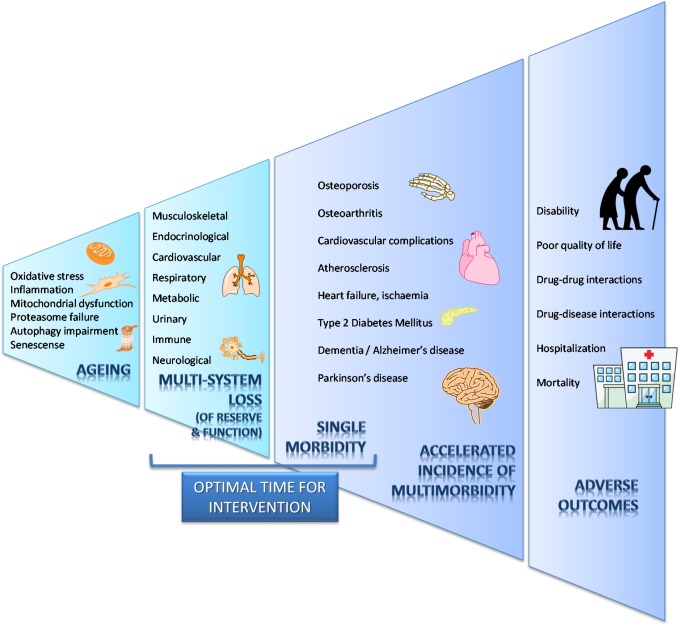
In the near future, 83 million Americans will have three or more chronic diseases, diseases that not only diminish quality and length of life but are almost entirely preventable. Chronic diseases like diabetes, cancer, dementia, depression, osteoporosis, and autoimmune disease.
Because these diseases come on gradually, starting around age 45 or 50 we don’t always recognize the slow, steady decline in our energy, function, and wellbeing.
After 60, we may see a steeper decline, and by 70 we’re often ready to resign ourselves to poor health, pills, doctors, hospitals, and nursing homes!
Why wait until you feel and see the decline?
The optimal time to intervene is earlier, making lifestyle choices that support your best health in your 30s, 40s, and beyond.
Perhaps we’re not as proactive as we could be because our medical system tells us we’re fine unless we have an increased risk of disease. By focusing on treating disease, rather than preventing it, traditional medicine often fails us by waiting too long to address the problem when we can still do something about it.
But the new science of longevity, based on the principles of functional medicine, can teach us how to prioritize and optimize our health, function, and wellbeing.
Why wait a moment longer to live your healthiest, most vibrant life?
“Eighty percent of our future health is in our hands today.”
– Dr. David Sinclair, Professor of Genetics at Harvard Medical School

age AS a reflection of lifestyle
Longevity science has given us a unified theory of aging, that there are common underlying factors that seem to lead to downstream diseases of aging.
The diseases that we think are the causes of death: heart disease, cancer, diabetes, and Alzheimer’s, are really just downstream consequences of imbalances in our biology that we can do something about.
Depending on our genetics and life experience, aging may be expressed as heart disease in one person, cancer in another, diabetes, or Alzheimer’s in another.
This specific expression is due to underlying factors like inflammation, mitochondrial dysfunction, diet, gut health, sleep, and exercise- all of which we have the immense ability to control.
The diseases we attribute to aging are largely preventable when we understand the impact of our lifestyle choices.
The foods we eat, the chemicals we are exposed to, how active we are, the quality of our sleep, stress management, sense of purpose and connection: all of these factors play a huge role in the rate of our aging.
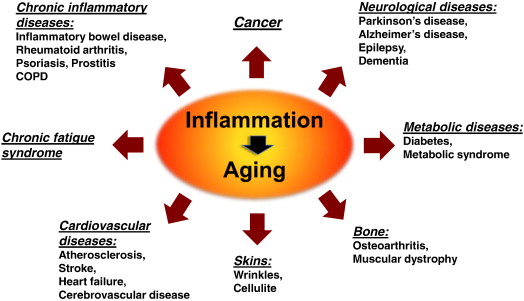
AGING AND INFLAMMATION
We know the chronic diseases of aging are also called inflammatory diseases. This link between inflammatory dysfunction and aging known as “Inflammaging,” is more likely to occur when we engage in inflammatory lifestyle behaviors.
These include:
- Consuming a diet high in processed foods, sugar, unhealthy fats, and excess calories.
- Being sedentary.
- Overconsuming alcohol and/or drugs.
- Poor sleep habits and sleep quality.
- Failing to manage stress.
- Social isolation.
- Lack of supportive community and purpose.
- Toxic exposure to environmental toxins found in cookware, cosmetics, food containers. cleaning supplies, medications, clothing and more.
The way we age is a direct reflection of our daily choices.
Frailty, confusion, dysfunction or strength, resilience, and relevance. The choice is all up to us.
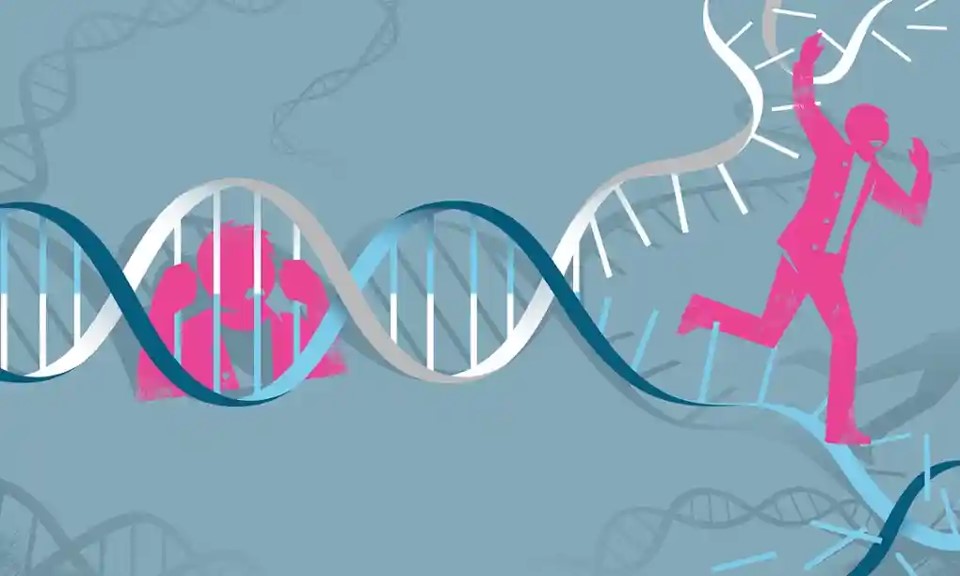
your dna is not your destiny
While it is true that our genes determine our hair color, eye color, and how tall we are, they are not the final determinant of our potential for health or disease.
In fact, only about 15% of the risk for all chronic diseases is attributable to genetics- the remaining 85% is due to our own lifestyle choices and environment.
For instance, say you have a genetic predisposition for Alzheimer’s disease because you have a specific gene called APO E 4.
If you have two APO E4 genes your risk of developing Alzheimer’s is nine times greater than the general population.
This does not mean you’re destined to get it, not everyone with these
genes gets Alzheimer’s. That’s because adopting an anti-inflammatory diet early in life can mitigate that risk by 50%!
Lifestyle choices have more impact when it comes to whether or not you end up with a chronic disease.
Type 2 diabetes is a prime example.
Certain genes, excess blood sugar, and body fat all boost the chance that you’ll develop it.
But a person of normal weight, with low blood glucose, even if they have the highest-risk genetics, probably won’t get diabetes.
The person who’s overweight, even if they have the lowest-risk genetics, is at greater risk for developing diabetes. And we can control our weight and blood sugar.
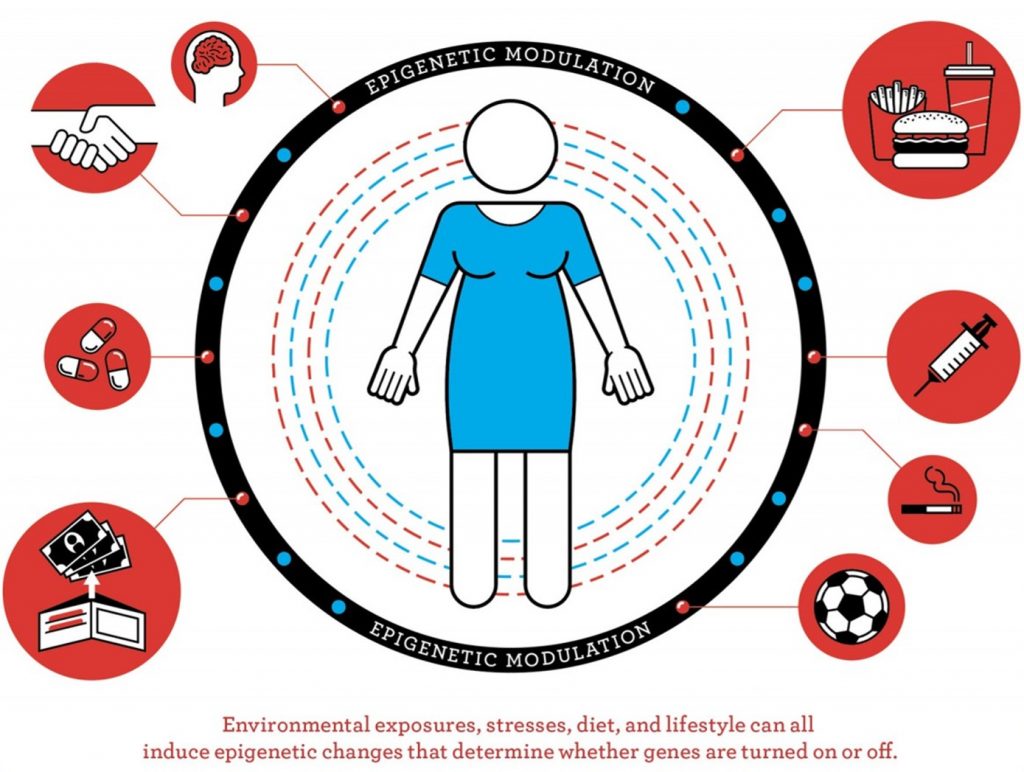
LIFESTYLE AND EPIGENTICS
What is epigenetics?
Epigenetics is how our behaviors and environment influence the way our genes express themselves.
Simply explained, our genes are sections of our DNA. DNA is the blueprint/instruction manual for building our unique body.
If we liken our DNA to being the keys on a piano (fixed/mechanical), we still need someone to play the piano to make music. The player is epigenetics.
Epigenetics controls genes.
As the “piano player,” epigenetics determines a cell’s specialization- will it become a skin cell, blood cell, hair cell, liver cell, etc.)
Epigenetics has the ability to turn on a gene (gene expression) or turn off a gene (gene silencing), depending on the environmental stimuli.
What you eat, where you live, who you interact with, when you sleep, how you exercise – all of these can eventually cause chemical modifications around the genes that will turn those genes on or off over time.
And as we previously discussed, certain diseases such as cancer or Alzheimer’s, are influenced by which genes are expressed (active) or silenced (dormant.)
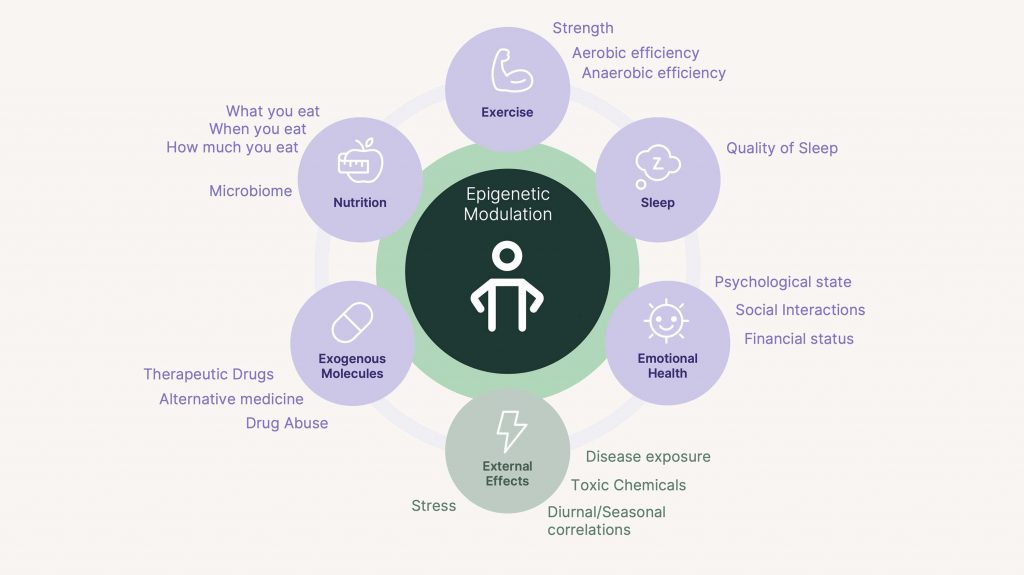
Epigenetics make us unique.
Why do some of us have blonde hair or darker skin? Why do some of us hate the taste of mushrooms or eggplants? Why are some of us more sociable than others?
Different combinations of genes that are turned on or off are what makes each one of us unique.
There’s also some indication that some epigenetic changes can even be inherited, so your lifestyle choices may be passed down to your children and grandchildren. The microbiome is a good example.
Epigenetics is reversible.
With more than 20,000 genes, the possible combinations of gene expression are limitless.
As scientists seek to map the cause and effect of the different combinations, to see if it’s possible to reverse the gene’s state to keep the good while eliminating the bad… they could hypothetically cure cancer, slow aging, stop obesity, and so much more.
The potential of epigenetics science and its impact on aging is immense.
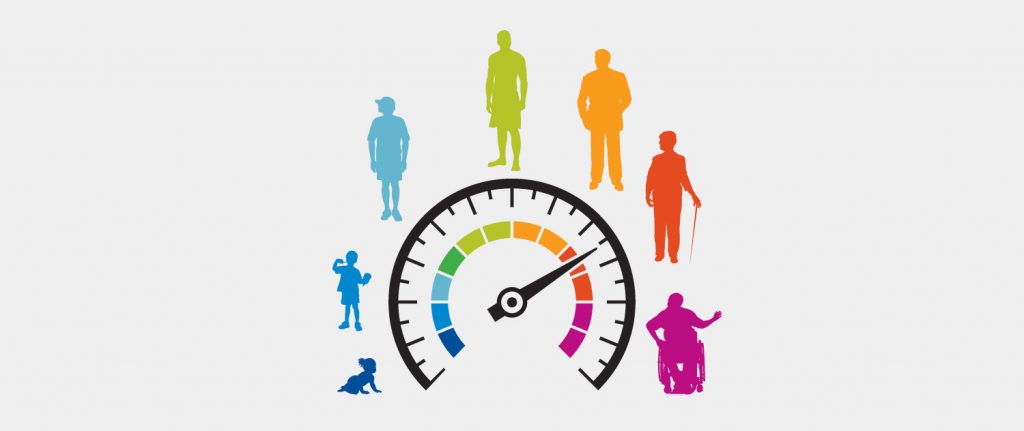
EpigeneticS and Age
We now know that epigenetics is the complex machinery determining how active or inactive each of our genes are. Genes are the keys on the piano- but epigenetics is the player of the piano, determining how genes are expressed or silenced.
The problem that occurs during aging is that our epigenetics become increasingly dysregulated.
Liver-specific genes are erroneously switched on in brain cells, stomach genes are switched on in muscle cells, and so on.
Genes that need to be turned off are turned on (like cancer-promoting genes), and genes that need to be turned on are switched off, such as genes that repair or protect our cells.
Generally, we see that our DNA ages and becomes more demethylated (which we will explore more in The Big Rewind workshops). As a result, gene transcription (the process by which DNA is copied for protein synthesis), is less suppressed in many areas.
This leads to specific genes becoming active that should not be active, like cancer and other disease-promoting genes. Combine that with the chronic inflammation that also accompanies aging and we have increased cellular dysfunction.
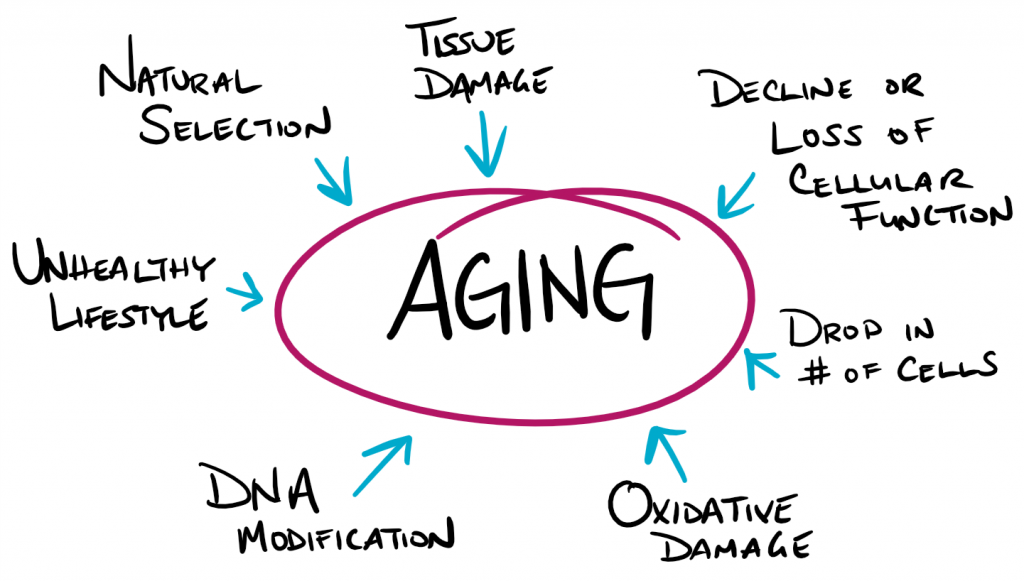
summary
The biochemistry of aging begins long before we may feel it on the cellular level. Our genetics may predispose us to certain outcomes and risk for disease, but our lifestyle has the greater impact.
In other words, genetics load the gun, but lifestyle pulls the trigger.
We now know from current research that only about 15% of our risk for developing chronic disease depends on genetics, but 85% has to do with diet and lifestyle.
Thankfully, this is great news!
Because even if we have a genetic tendency toward premature aging and disease, we now know we can prevent and often reverse that propensity with targeted lifestyle habits and strategies.
THE BIG REWIND discusses these strategies in detail, but for now, let’s look at aging and where it begins- in our cells.
Click here to read the next post about the ten hallmarks of aging.
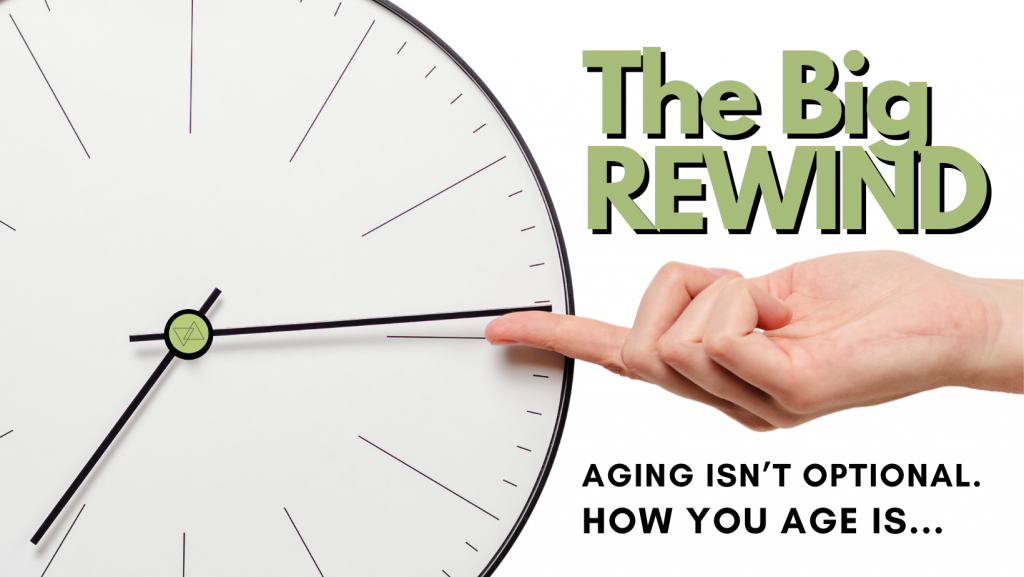
The mechanism of aging all boils down to keeping our mitochondria and DNA clean, healthy, and functional.
In addition to eating healthy, moving regularly, and staying connected in your community, new scientific discoveries in longevity can help us not only live longer but better, healthier, and with more joy!
Join Tina Sprikle for THE BIG REWIND, a 3-part series exploring the reasons why we age and what we can do about it.
All workshops take place in-person from 2:00-3:30 pm at Centered Spirit located at 8131 Wornall Road, Kansas City, Mo. 64114. We will film each session for replay later should you have to miss the live event.
Single Workshop: $45
All three workshops: $69

workshop #1.
why we age
SATURDAY, OCTOBER 22, 2022
2:00 -3:30 PM
Take a deep dive into the biochemistry of aging, and longevity science, to learn how you can not only live longer but live better!

workshop#2.
what we can do
Saturday, November 12, 2022
2:00 – 3:30 PM
The importance of nutrition, meal timing, exercise, targeted supplementation, and peptide therapy for slowing down and reversing aging with special guest Dr. Rahul Kapur.

workshop #3. ask the surgeon
Saturday, January 14, 2023
2:00 – 3:30 PM
You’re eating right, exercising and working your anti-aging protocol but still want a fresher face in the mirror. Join special guest Dr. Regina Nouhan as she answers your questions about options for facial cosmetic surgery.
Each 90-minute workshop provides participants with:
- The latest longevity research education
- Actionable steps to improve your health, slow and or reverse aging
- Workshop topic Ebook
- Resources links and service providers
- Video replay
- Optional follow-up resource texts
until we get this party started why we age - 10.22.2022
Questions?
I’m always a text or email away.
Email me at tina@tinasprinkle.com or send me a text at 913 963 8546.

